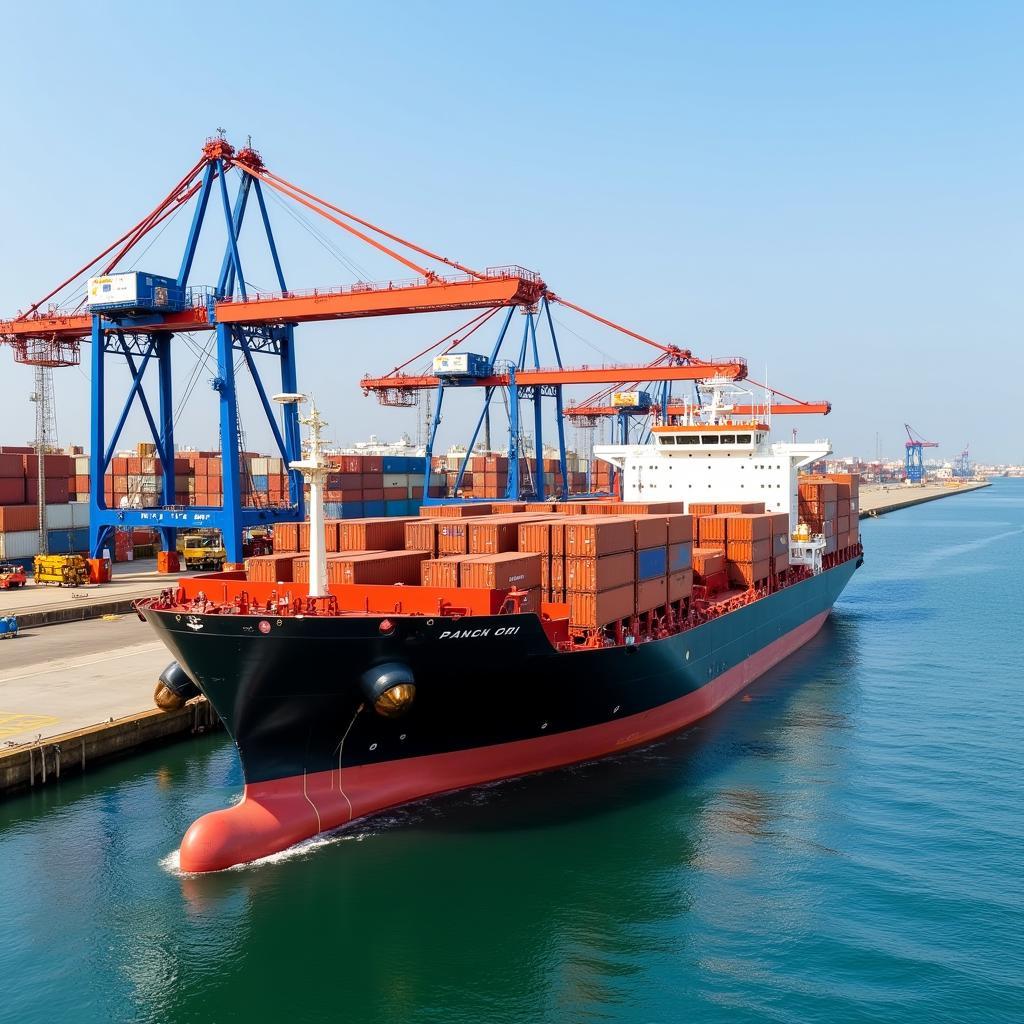The African Importers Guide: Navigating Trade with Confidence
Africa’s burgeoning economies and diverse markets present lucrative opportunities for international businesses. As an importer, navigating the intricacies of African trade can seem daunting, but with the right knowledge and strategies, a world of possibilities opens up. This comprehensive guide is tailored to provide you with the essential insights and practical advice needed to confidently navigate the landscape of African imports.
 African Marketplace Trade
African Marketplace Trade
Understanding the African Import Market
Before delving into the specifics, it’s crucial to grasp the scale and diversity of the African import market. From agricultural products like African cashew nuts price to raw materials and manufactured goods, the continent’s import demands are vast and varied. This diversity also extends to the regulatory frameworks, cultural nuances, and business practices across different African nations. Therefore, conducting thorough market research and understanding the specific regulations and business etiquette of your target country is paramount.
Key Steps for Successful Importing from Africa
Importing from Africa, like any international trade venture, requires meticulous planning and execution. Here’s a step-by-step guide to ensure a smooth and successful import experience:
1. Identify Your Niche and Target Market
Africa offers a plethora of import opportunities. Pinpointing your specific product niche and target market within the continent is the first crucial step. Conduct thorough market research, analyze demand and supply trends, and identify potential competitors. Consider factors like local consumption patterns, cultural preferences, and economic indicators to make informed decisions.
2. Source Reliable Suppliers
Finding trustworthy and reliable suppliers is paramount. Attend international trade shows, explore online B2B platforms, and leverage your network to connect with reputable suppliers in your chosen sector. Conduct due diligence, request samples, and verify supplier credentials to ensure product quality and ethical sourcing practices.
3. Navigate Legal and Regulatory Frameworks
Navigating the legal and regulatory landscape of your target African country is essential. Familiarize yourself with import duties, taxes, licensing requirements, and product standards. Consult with legal experts specializing in international trade to ensure compliance and avoid potential hurdles.
4. Establish Secure Payment Methods
International trade necessitates secure and reliable payment methods. Letters of Credit (LCs) offer a high level of security for both importers and exporters. Other options include Documentary Collections and open account transactions, each with varying levels of risk and convenience. Choose a payment method that aligns with your risk tolerance and business relationship with the supplier.
 African Shipping and Logistics
African Shipping and Logistics
5. Arrange Efficient Logistics and Shipping
Efficient logistics and shipping are crucial for timely delivery and cost-effectiveness. Partner with experienced freight forwarders and customs brokers who specialize in African trade routes and regulations. Understand the intricacies of Incoterms (International Commercial Terms) to clearly define responsibilities and minimize potential disputes.
6. Ensure Quality Control and Product Inspection
Maintaining stringent quality control throughout the import process is non-negotiable. Implement rigorous product inspections at various stages, from pre-shipment to arrival at your destination. Consider engaging independent inspection agencies to ensure adherence to quality standards and contractual obligations.
7. Building Lasting Partnerships
Cultivating strong and lasting relationships with your African suppliers is key to long-term success. Prioritize open communication, mutual respect, and a commitment to fair trade practices. Regular visits to your suppliers’ facilities and participation in industry events can further strengthen these crucial partnerships.
Challenges and Opportunities for African Importers
While the African import market brims with potential, it’s also essential to acknowledge potential challenges. Infrastructure limitations, bureaucratic hurdles, and political instability in some regions can pose obstacles. However, with meticulous planning, due diligence, and adaptability, these challenges can be effectively navigated.
The African Continental Free Trade Area (AfCFTA) presents a transformative opportunity, aiming to create a single market for goods and services across the continent. This landmark agreement has the potential to streamline trade, reduce tariffs, and unlock unprecedented economic growth, further enhancing Africa’s attractiveness as a global sourcing destination.
Expert Insights on African Imports
“Understanding the cultural nuances and building personal relationships is crucial when doing business in Africa,” says Adisa Akinwale, a seasoned import-export consultant specializing in East African markets. “Taking the time to understand your partners’ perspectives and building trust can go a long way in ensuring smooth and successful trade collaborations.”
 African Business Partnership
African Business Partnership
Conclusion: Embracing the African Import Advantage
Importing from Africa offers a wealth of opportunities for businesses seeking to diversify their supply chains, access unique products, and tap into emerging markets. By embracing a strategic and informed approach, navigating the intricacies of African trade can become a rewarding and profitable endeavor. As Africa continues its economic ascent and the AfCFTA takes shape, the continent is poised to become an even more integral player in the global trade arena. Embrace the African import advantage and unlock a world of potential for your business.
FAQs About Importing from Africa
1. What are the most common products imported from Africa?
Africa is a significant exporter of a wide range of products, including agricultural commodities (coffee, cocoa, cashew nuts), minerals (gold, diamonds, copper), oil and gas, and increasingly, manufactured goods and textiles.
2. How can I find reliable suppliers in Africa?
Utilize online B2B platforms, attend international trade shows, connect with trade associations, and leverage your network to identify potential suppliers. Always conduct due diligence and verify supplier credentials before entering into any agreements.
3. What are the main payment methods used in African trade?
Letters of Credit (LCs) are widely used for their security, while Documentary Collections and open account transactions offer varying levels of risk and convenience.
4. What are the key logistics considerations for importing from Africa?
Partnering with experienced freight forwarders and customs brokers specializing in African trade routes is crucial. Understanding Incoterms and ensuring proper documentation are essential for smooth shipping and customs clearance.
5. What is the impact of the African Continental Free Trade Area (AfCFTA) on imports?
The AfCFTA aims to significantly boost intra-African trade by reducing tariffs and easing trade barriers, potentially creating new opportunities and streamlining the import process from various African nations.
Need further assistance with importing from Africa? Contact our team of experts at +255768904061 or email us at kaka.mag@gmail.com. You can also visit our office located at Mbarali DC Mawindi, Kangaga, Tanzania. Our dedicated customer support team is available 24/7 to answer your queries and provide tailored solutions for your import needs.



